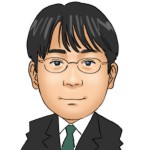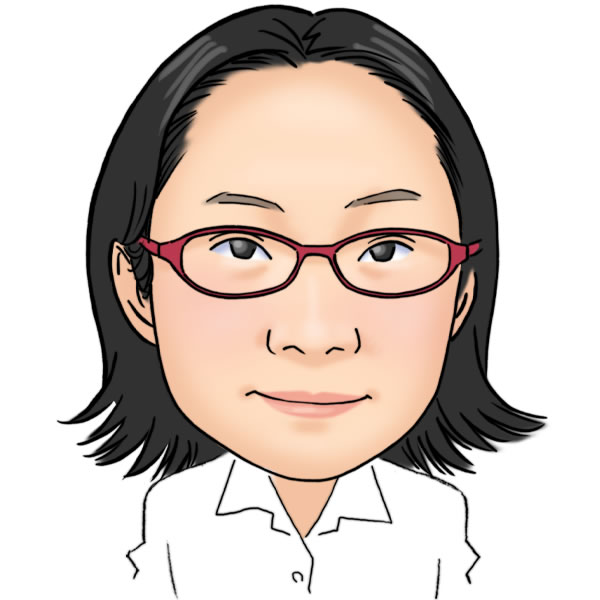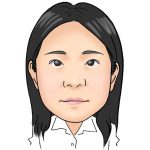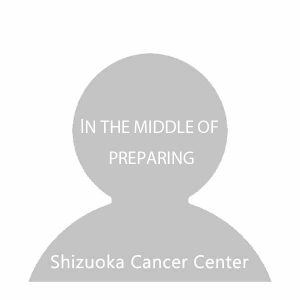 |
 |
 |
||
| Deputy Director and Chief Yuji Ishida, M.D. |
Senior Staff Rieko Taniguchi, M.D. |
Senior Staff Ikuko Takahashi, M.D. |
|
 |
 |
 |
 |
 |
| Ayako Yamamori, M.D. |
Yusuke Tsumura, M.D. |
Kotaro Ogawa, M.D. |
CLS Yuko Tsuneishi |
CLS Kyoko Nishimoto |
Pediatrics is a clinical department where prevention and treatment for children’s (up until 15 years old) diseases are provided. The Division of Pediatrics at the cancer center is specializing in therapies for cancers in children (pediatric cancer).
Cancers in child patients can be distinguished by where they originate. For adults, it is common that cancers originate in organs connected to outer environment, e.g., lung cancer, stomach cancer and colorectal cancer, while for children, they often originate in organs which are not in direct contact with outside, e.g., leukemia (blood cancer), malignant lymphoma, brain tumor, and sarcoma or granuloma in muscles and bones. Cancers in children can be treated by various methods including surgery, radiation therapy and chemotherapy (with anti-cancer drugs), and the skillful combination of these.
In order to get the best results from multidisciplinary team care, several clinical departments and the staff with various professions (e.g., doctors, dentists, nurses, child life specialists, psychotherapists, physical therapists, occupational therapists, speech therapists, radiologists, etc.) are involved in cancer treatments for child patients here.
Introducing Child Life Specialist (CLS)
For pediatric cancers, there have been more and more cases lately that cancer treatments have proven positive effects and the patients have spent rather long periods of time without recurrence. However, sometimes they may suffer from pains over the course of cancer treatments, or from bad health as aftereffects of surgeries, radiation therapy or anti-cancer drug therapy. Also, even after years from cancer treatments, they may still suffer from some unpleasant symptoms (i.e., late complications). Since we wish to lessen these late complications, we practice cancer treatments including surgeries to retain physical functions for many years to come, radiotherapy involving proton therapy which can be a thoughtful choice considering children’s futures, and customization of administration methods in chemotherapy for the least possible anguish.
At the SCC, we have “proton therapy for pediatrics,” which is provided with a very critical therapeutic device for pediatric cancer patients, and a team of the medical staff supporting this therapy. There are only a few medical institutions where proton therapy is provided for pediatric cancers in Japan. Therefore, we cooperate with all the medical institutions treating pediatric cancers nationwide in search for the best solutions for medical care for them. Among those institutions, we have especially close ties with the Shizuoka Children’s Hospital. The pediatricians there offer us their expertise per different organs, which is a big advantage for us.
We always seek new ways of treating pediatric cancers. As part of our efforts, we participate in clinical studies (i.e., applying new treatment methods clinically in accordance with applicable rules) and clinical tests (i.e., testing new drugs clinically in order to prove effects and safeness and to collect data for application for the official approvals) together with other medical institutions. We are determined to continue cooperating for those very meaningful studies in the field of pediatric cancer medicine.
At the Division of Pediatrics, we support cancer patients in the parenting generation raising minor children while taking cancer treatments themselves, in addition to the child cancer patients. We try to understand worries and anxieties of fathers and mothers, always weighing children’s perspectives.
AYA is an abbreviation for Adolescence and Young Adult. The AYA generation at this division covers those who have taken pediatric cancer treatments before becoming adults, and those who have become cancer patients before gaining enough life and social experiences. Patients in this generation are often said to have some specific issues because of the physical and social instabilities they go through. At the SCC, a special ward has been prepared exclusively for the patients in the AYA generation as part of the whole efforts of the hospital to help them take the best cancer treatments.
Cancer Medicine for the AYA Generation
At the Division of Pediatrics, the specialists provide cancer treatments in collaboration with doctors specializing in other clinical fields. Also, the medical staff other than the doctors are always involved in the care team supporting the children and their families.
We practice medicine by multidisciplinary team approach here. We provide treatments for pediatric cancer patients not only in the eastern region of Shizuoka prefecture but also in the other regions, focusing on pediatric malignant solid tumor. In doing so, we take a full advantage from the alignment with the Shizuoka Children’s Hospital. We are aware of the responsibility for providing and evaluating pediatric cancer treatments with as few late-stage disorders as possible, because this is a medical institution equipped with a proton therapy facility for pediatric cancers, which is a big advantage. For combination chemotherapy, we always work together with medical institutions for patient referrals. Moreover, we are currently in preparation for international joint studies with the Children’s Oncology Group (COG), U.S.A., aiming at an early development of a new cancer treatment as we can take advantage of being a big cancer hospital possibly providing many cases for the study. One of our goals is to support cancer patients in the parenting generation and their families. We have full-time Child Life Specialists (CLS) for the problem solutions. Also, for supporting the patients in the AYA generation and providing them with optimal cancer treatments, which has been noted as a major issue lately in cancer medicine, we are now well-prepared for the solution with a new ward specifically allocated for the patients in the generation.
pediatric cancer
support for cancer patient and his/her family
Specialist Certified by the Japan Pediatric Society
Hematologist Certified by the Japanese Society of Hematology
The Japanese Society of Pediatric Hematology/Oncology
The Japan Society for Neuro-Oncology
The Japanese Society for Transplantation and Cellular Therapy
International Member of the Children’s Oncology Group, U.S.A.
pediatric cancer
hereditary tumor
Specialist and Accredited Supervisory Doctor Certified by the Japan Pediatric Society
Specialist Certified by the Japanese Society of Hematology
Specialist Certified by the Japanese Society of Pediatric Hematology/Oncology
The Japan Society for Neuro-Oncology
The Japanese Society for Transplantation and Cellular Therapy
Clinical Specialist in Genetics Medicine Certified by the Japan Society of Human Genetics
pediatric cancer
support for cancer patient and his/her family
Specialist Certified by the Japan Pediatric Society
The Japanese Society of Pediatric Hematology/Oncology
General Clinical Oncologist Certified by the Japanese Board of Cancer Therapy
The Japanese Society for Palliative Medicine